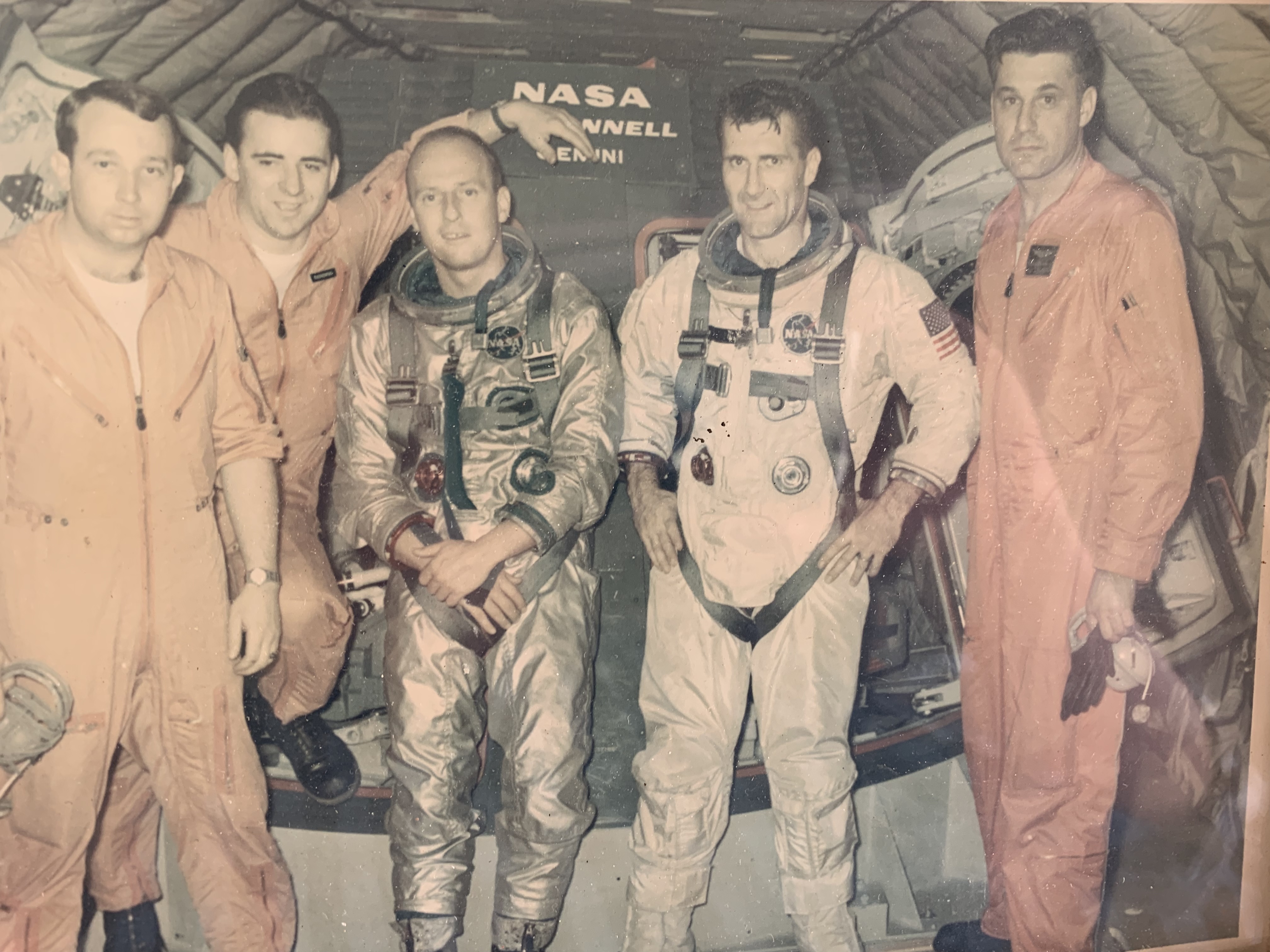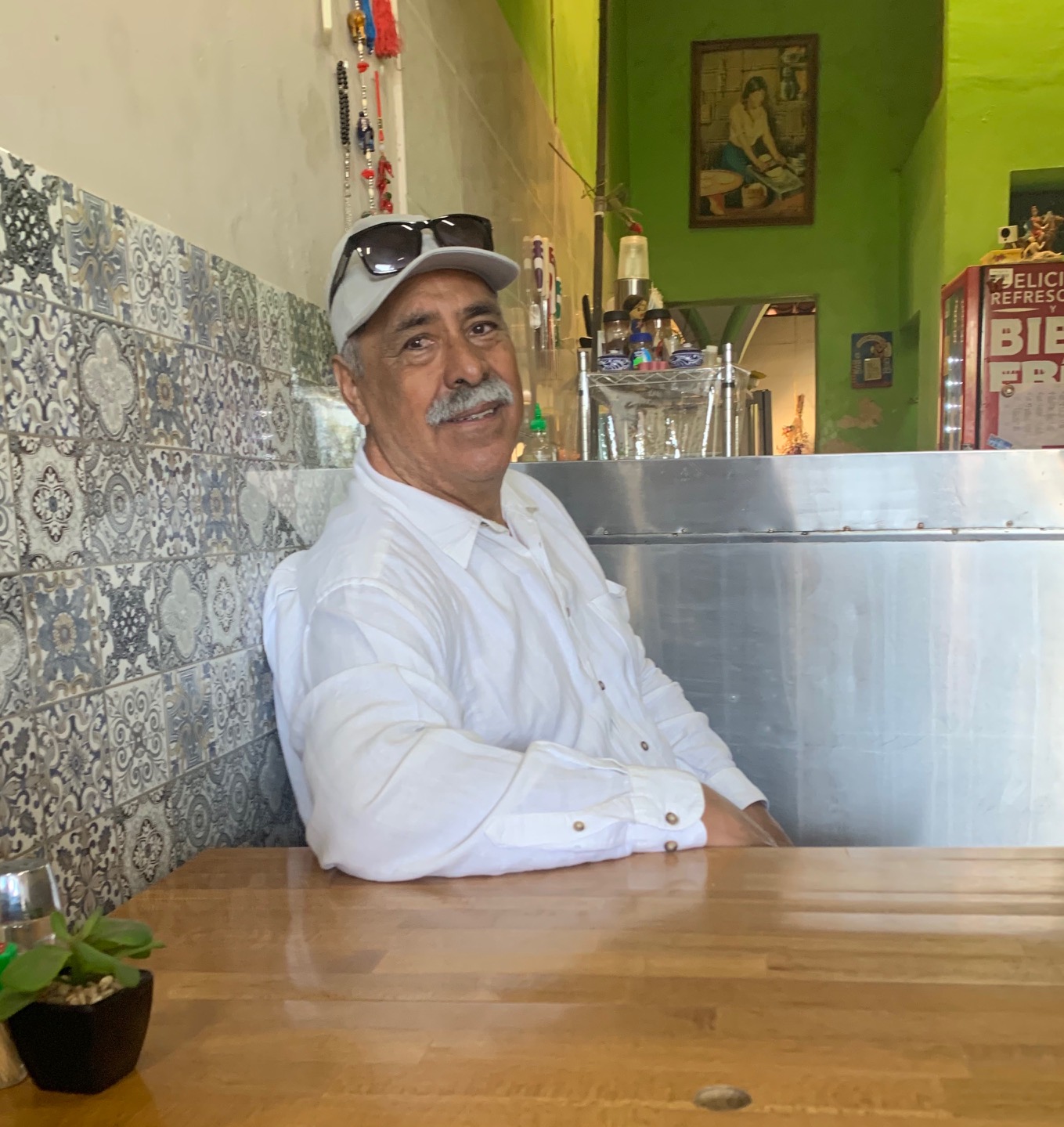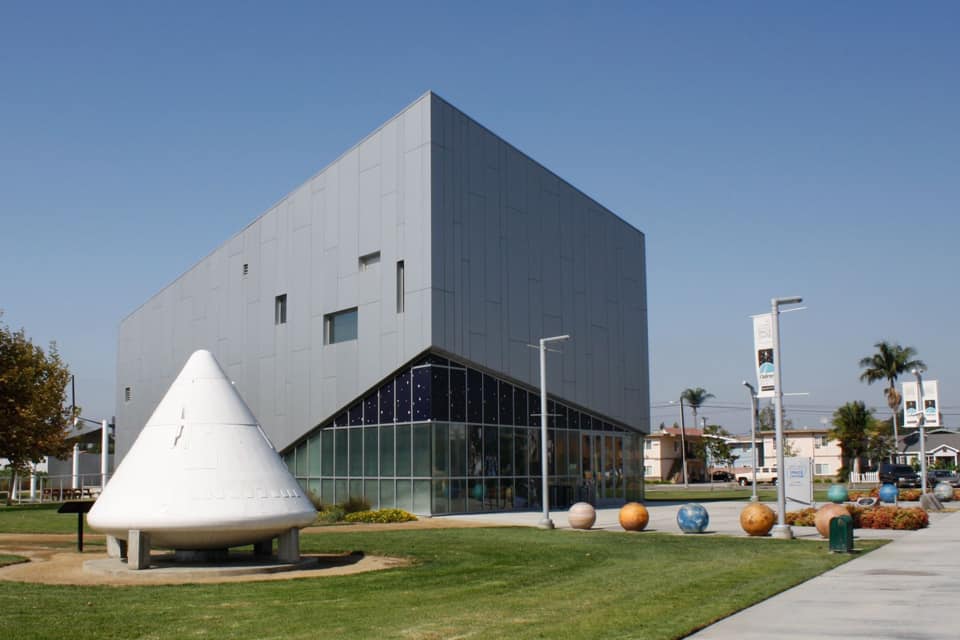Fifty years ago.
The staffers of the Long Beach Post remember the first steps on the moon. Where were you?
We Danced
On a warm July evening, I arrived at a dance at St. Joseph Elementary School in the back of a long white Cadillac. Technically, it was a funeral hearse that was being driven by my friend Bob’s dad who was a funeral director. He had driven my dad and stepmother in a similarly fancy death car to their wedding a decade earlier. For living people, we got a lot of mileage out of that car.
I was excited about the dance at St. Joseph, a school from which I had graduated a month earlier, and I was anxious to hook up with the rest of the newly minted eighth-grade graduates now that we were all adults. My dad was peeved, however. Disgusted, in fact, that I had chosen to go to a dance rather than stay home and watch an American walking on the moon. For the first time. In history.
To be honest, it was a tough call. Cool that a man was going to walk on the moon, but, then, there were going to be full-grown ladies at the dance. Yeah, now that I think about it, it wasn’t that difficult of a choice.
So my friend and I de-hearsed from the Caddy and strutted into the gymnasium amid the fawning admiration of everyone there who had arrived in a ragtag collection of parent-piloted Ford Falcons and Dodge station wagons.
And I forget almost everything else except when the historic moment happened. The band’s drummer had brought along a portable TV and a bunch of us post-eighth-graders and probably a clutch of chaperones huddled around the drummer’s kit to watch an already grainy feed made worse by the portable TV’s shaky reception, as Neil Armstong descended the ladder, slowly, as if to wring out every last second of historic anticipation and broadcast his now-famous words.
“What’d he say?” said six or eight kids and adults.
“Something about a giant leak?”
“He’s gonna EXPLODE!”
The moment passed without incident. Armstong was fine, and Walter Cronkite chronicled the rest of the evening to the viewers on the planet, I now suppose.
We missed all that. We had seen a little bit of history, and the bravest of us danced. (Tim Grobaty)
The Moon and The Man
Before Neil Armstrong and Buzz Aldrin could plant a single bootprint on the Moon, thousands of Americans worked to make that One Small Step a reality—hundreds of thousands, in fact. At its peak, Project Apollo employed, directly and indirectly, some 400,000 people. My father, George Sommers, was one of them.
My son, Aaron, as any reasonable, science-obsessed youngster would be, is currently caught up in moon landing anniversary fervor. It’s the topic of the day, every day, in our house. Celebrating the 50th anniversary of Apollo 11 with Aaron, and explaining his grandfather’s role in it, has been, well, challenging.
My father was already in his 50s by the time I was born; the only child of his brief second of several marriages. He had already had his first family and first marriage ending in divorce after 25 years, with my older siblings grown and gone by the time I came along.
I was the only kid in our home, but it was impossible to be bored when every wall in the house was a tribute to the awards and accolades acquired throughout my father’s storied career as a Chief Master Sergeant in the United States Air Force, assigned to NASA for over a decade.
His many longtime injuries as a disabled Veteran meant we never went out for a game of catch, or to toss a football, but that was OK because he could and did hold my attention for hours talking about his good friend General Tom Stafford, Commander of Apollo 10, or his work as a mission manager of Apollo 17, the last manned mission to the Moon, or his Presidential Citation for his work on the Skylab rescue mission.

There were pictures of my father in his flight suit, one foot on the ladder up into a T-38 trainer jet, or of him posing in the Vomit Comet zero-g jet with Pete Conrad before Gemini 11, or of him sitting in Mission Control. He was dashing and handsome in each photo—a larger-than-life military man, right out of central casting, who played a central role in the Golden Age of the Space Age.
My father was professionally admirable for his role in Apollo 11 and his achievements with NASA—less admirable for his personal achievements as a father. There are reasons the courts determined it best for me to not live with him any longer after I turned eight.
My own son, Aaron, is now eight, and while my father died long before he was born, Aaron does know the professional legacy my father left behind. It’s on the walls of his room now; his grandfather’s NASA memorabilia hung around, the stories of Apollo 11 I heard as a boy are stories I’m making sure to now share with my son.
Squaring away my father’s legacy as a father with my father’s legacy as a NASA man has been an important thing for me to share with Aaron. It’s been made easier thanks to the love and support of Jim Sloan, the man who has been my dad for over 30 years after my mom remarried decades ago.
Aaron and I will talk about Apollo 11 tonight and all weekend long.
We’ll look at one grandfather’s NASA photos and we’ll go over the same stories I’ve shared with him many times. Then he’ll Facetime his other grandfather, my dad—his Grandpa Jim—as Aaron likes to do.
They’ll talk about science stuff and swap bad jokes. They’ll call each other knuckleheads.
They’ll say “I love you.”
It will be perfect. (David Sommers)
Look!
My dad, Javier Rivera, didn’t see a live broadcast of the Apollo 11 moon landing on Sunday, July 20, 1969. He read about it in the paper the next day. He even helped spread the news to other folks in town.
Before I get into his story about that momentous occasion, though, I want to give you a bit of context about where he grew up.
Juchitlan, Jalisco is a small central-western Mexican town with a population of a few thousand and where the number of people who owned television sets at the time were few and far between. It’s about three hours south of the state’s capital, Guadalajara, and it is surrounded by rolling hills with farms and houses sprinkled in between. Many fiestas and ceremonial events are tied to religion in Juchitlan, and the massive Catholic church that was built around the mid-1800s is considered the center of life there.
I asked my dad if they had potable water and electricity by that time and he said yes. Phew.

Now here’s his story:
Señor Urbano, the father of Javier’s friend, asked him if he wanted to earn a few cents Monday afternoon.
“Yes!” 15-year-old Javier enthusiastically responded.
Señor Urbano owned a general store and a market in town and my dad thinks he must have figured the moon landing would be a big deal so he ordered extra copies of the day’s newspaper to sell and deliver them straight to the people’s doorsteps—the news could not wait!
When I asked why the copies were distributed during the afternoon instead of the morning, he reminded me that the newspapers were delivered by truck from the state capital up north, which was about a three-hour drive down south.
Javier up until that point had never sold newspapers before—his after-school jobs included being the campanero (bell-ringer) and jardinero (gardener) for the town’s church, helping my grandpa who was the groundskeeper.
That didn’t stop my dad from jumping on the opportunity to make extra money to buy apples, plums, bananas and ice cream to share with friends.
Equipped with as many newspapers as he could hold, Javier trekked up to the hilly neighborhood of the town called Tierra Blanca and yelled from the top of his lungs.
“El hombre llegó a la luna! Aqui esta! El hombre llegó a la luna! Miranlo! Aqui esta la foto!” my dad exclaimed.
English translation: “Man has reached the moon! Here it is! Man has reached the moon! Look! Here’s the picture!”
Within an hour Javier was done. He had sold all the copies.
He then got himself a copy of the newspaper and sat down with a friend in the plaza to enjoy his hard-earned treats and finally read the news himself.
“Era algo increible, un evento único,” Javier remembered feeling. “Yo me puse muy feliz porque hombre había conocido algo que no pudo conocer antes.”
English translation: “It was something incredible, a unique event. I was very happy because man had discovered something that he did not know before.” (Stephanie Rivera)
The Moment
I was eight years old when Armstrong stomped the moon. It was, of course, a big deal everywhere, but perhaps just a bit bigger where I lived: Downey. We built the Apollo in Downey. Not me, specifically; I was eight. But the people at North American Aviation which, at peak work hours, employed more than 35,000 people at their massive site on Lakewood Blvd.
North American is gone, replaced by a few things, including the Columbia Memorial Space Center and shopping centers called the Downey Landing and The Promenade, which features a 24-Hour Fitness that used to be Building 290, where final construction of the Apollo was completed.

Eventually, my hometown would have much to crow about—the Carpenters (huge), the Blasters (cred), Taco Bell (first) and McDonald’s (oldest), but in 1969, it was all Apollo.
“Steeeeeven!”
Only two people call me Steven—my mother and sister—three if I happen to be dating someone. On this occasion, July 20, 1969, it was my mom calling me in to watch something on TV, an oddity since she often told me I watched too much from too close. This being July 20, 1969, being called to watch something on TV was a dicey situation since casualties from Vietnam were read on the evening news like stock quotes and assassinations were so common—King and Kennedy had been cut down the year before—as to suggest to an eight-year-old that they were an integral facet of political discourse.
I knew that the moon landing was happening—I watched a lot of TV and was from Downey—but children being blessed creatures of the moment (When does that stop? Why does that stop?) I was more interested in whatever bizarro, hybrid game we had invented that day than witnessing history. But my mother insisted.
My best friend, Ronnie, and I ran in the house and planted ourselves in front of the TV (“Steven! Move back, you’ll ruin your eyes!”). We’d arrived at almost the exact moment of Armstrong’s descent and I remember being instantly transfixed, instantly appreciative of the weight of what was about to happen. And then it did. Aldrin soon followed and I remember being shocked at how fast the two of them moved about the surface of the moon.
Up until that moment, what I had been shown to expect about the moonwalk was that it would look like extreme slo-mo, like men struggling through quicksand, that each motion would be long-considered and exaggerated. So it was a jolt to see Armstrong and Aldrin flitting about, darting in and out of the frame, their unmistakable joy in the moment completely recognizable to Ronnie and me. They looked like two kids, lost in a moment, making it up as they went along.
They planted a flag, climbed back up and Ronnie and I were released.
We went back outside and no doubt picked up our game. No, we did not play Apollo. Kids are innocent, but we’re not lame. Though, I do remember mentioning to Ronnie my surprise at the speed of the astronauts on the moon and the two of us immediately performing short wind sprints, the kind you did in the store when your mom bought you new sneakers.
Maybe we looked up at the moon; it would have been appropriate. Then again, maybe that moment was over and maybe we were on to the next thing, perhaps a game that involved hitting a half-inflated football with a baseball bat, extra points if you could bank it into a basketball hoop.
Oh, I loved summer.
God, I love Downey. (Steve Lowery)

